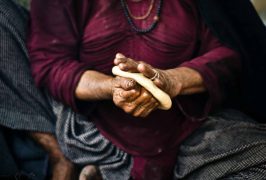This case concerned whether ameliorative (affirmative action) government programs could discriminate against some members of disadvantaged groups while benefiting other members.
LEAF intervened before the Supreme Court of Canada.
Facts
The Alberta Metis Settlement Act (the “MSA”) was enacted to preserve a land base for the Métis in Alberta, to enable Métis self-governance, and to enhance and preserve Métis culture and identity. The MSA also governed entitlement to membership in the eight Alberta Métis Settlement communities.Under the MSA, individuals who “voluntarily” registered for Indian Status under the Indian Act after November 1, 1990, were excluded from membership in a Métis settlement.
Members of the Cunningham family, all long-standing (and some even founding) members of thePeavine Métis Settlement, obtained status under the Indian Act in the early 1990s to access health benefits unavailable to Métis. As a result, they were removed from the Métis Settlement Membership list. This deprived them of, among other things, their rights to reside in their community and participate in governance and communal life.
The Cunninghams argued that their exclusion from the MSA discriminated against them based on their status under the Indian Act. The judge dismissed their claim. The Alberta Court of Appeal allowed the Cunninghams’ appeal, finding that the provisions violated s. 15(1) of the Charter. The Alberta government appealed to the Supreme Court of Canada.
Arguments
Section 15(2) of the Charter allows the government to implement affirmative action programs and gives greater deference to the government’s choices in relation to those programs. LEAF argued that this should not be used to protect affirmative action programs that discriminate against members of disadvantaged groups. Instead, s. 15(2) should only apply where privileged groups claim “reverse discrimination” or challenge the existence of programs which, because of their privilege, they do not require.
Protecting affirmative action programs even from claims by disadvantaged groups would disproportionately impact women (and others) who experienced multiple layers of discrimination. Where members of disadvantaged groups challenged their exclusion from these programs, the courts needed to use s. 15(1) of the Charter to fully scrutinize the discriminatory effects.
Outcome
The Supreme Court dismissed the Cunningham family’s claim. The Court held that any distinction was justified by s. 15(2) of the Charter, as excluding individuals with status under the Indian Act from formal membership in Métis settlements served the goals of the affirmative action program.
LEAF is grateful to Dianne Pothier and Joanna Birenbaum, counsel in this case.
Download the factum here.
Read the Supreme Court of Canada’s decision here.
Our records are imperfect, but we are doing our best to update them – if you were involved with LEAF on this case but your name is not reflected here, please email us at [email protected].
